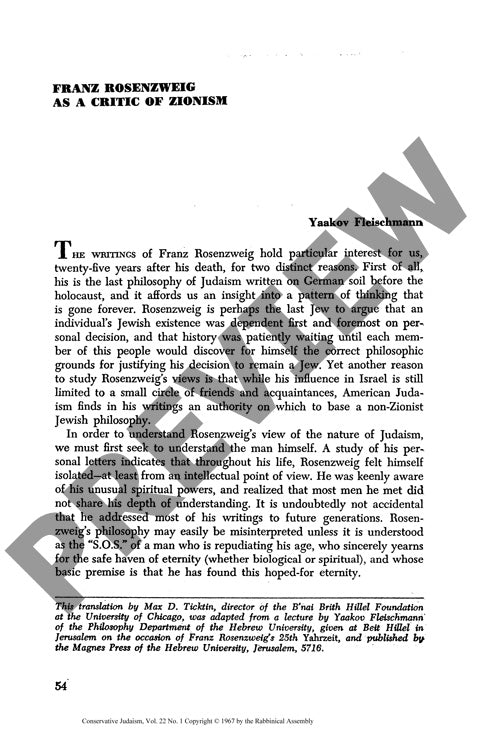Franz Rosenzweig as a Critic of Zionism
Couldn't load pickup availability
Franz Rosenzweig's philosophical rejection of Zionism emerged from his radical vision of Jewish peoplehood as an eternal, spiritual entity transcending territorial bonds. Through his personal correspondence and seminal work *Der Stern der Erlösung*, Rosenzweig articulated a unique theological framework that positioned Jews as a divinely constituted *Blutgemeinschaft* (community of blood) whose mission was inherently universal rather than national. Drawing on Schelling and Schopenhauer's philosophical foundations, he developed a sophisticated argument centered on Creation, Revelation, and Redemption to establish Jewish particularity. Rosenzweig contended that political Zionism would inevitably diminish Judaism by reducing it to mere statehood, thereby undermining its cosmic spiritual purpose. Yet his philosophy contains notable inconsistencies, particularly in reconciling world history with Jewish particularism and in grounding Jewish identity in individual choice rather than collective destiny. While Rosenzweig's nuanced understanding of diaspora-homeland dynamics continues to enrich contemporary Jewish discourse, his framework ultimately failed to account for the historical forces that would make Zionism not a philosophical choice but a practical necessity in response to modern anti-Semitism.

More Information
-
Physical Description
-
Publication Information
Published 1967
ISBN
-
Publication Credits
Yaakov Fleischmann

